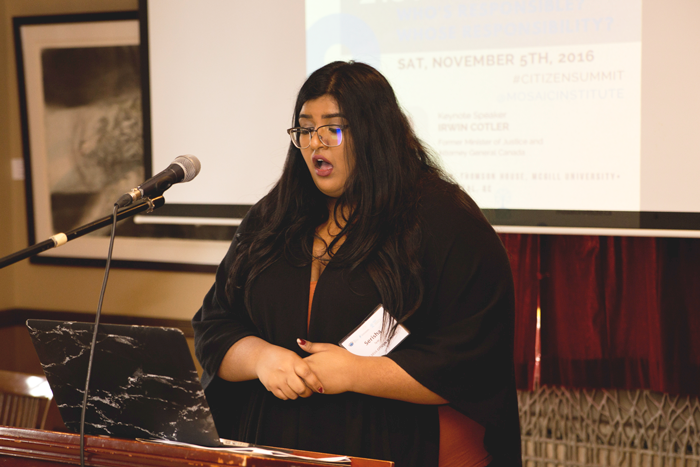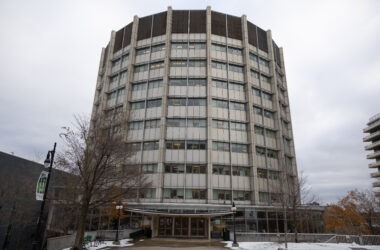On Nov. 5 over 100 students, faculty, and activists from across Canada gathered at The Citizens Summit on Refugees in the 21st Century for a full day of workshops and panels at Thomson House.
According to the Government of Canada, there are currently 33,723 Syrian refugees in Canada; over 25,000 of these refugees were resettled by the government between November 2015 and March 2016. Canada intends to continue the resettlement process through 2016. Activists at the Summit addressed the variety of struggles faced by refugees upon arrival, including social, political, and health care challenges. Earlier this year, the United Nations announced its New York Declaration for Refugees and Migrants, which promises to adopt a global compact to facilitate migration in 2018.
In his keynote speech, the Honourable Irwin Cotler, an emeritus professor of Law at McGill University and chairman of the Raoul Wallenberg Centre for Human Rights, emphasized the need for immediate action by Canadian citizens and the government to tackle the global refugee crisis.
“How many more killings do we have to endure until those compacts are adopted, and why do we have to await the adoption of those global compacts?” Cotler asked. “Right now we have global contracts, treaties that we are not putting into play. While I welcome the convening of 193 countries and adoption of the New York Declaration […] what it lacks is the urgency respecting the human suffering that is so persistent, so pervasive internationally, that we have a responsibility to protect.”
Vahan Kololian, founder and chairman of the Mosaic Institute, the think-and-do-tank that hosted the Summit, echoed Cotler’s call for immediate action.
“Canada should be playing a much larger role on the global stage,” Kololian said. “Why doesn’t Canada organize a conference in Ottawa, and invite the U.S. and Russia, and tell them, ‘We really hope you will come, because the world needs to talk.’”
Cotler reminded individuals of their ability to make an impact.
“[You may think], I’m not a Mandela, or I’m not a Wallenberg,” Cotler said. “But every person has within them the ability to make a difference. We have to understand that these are not a matter of abstract statistics. Beyond and behind each statistic is a person with a name, with an identity, each person being a universe. If you save a single person, it is as if you have saved an entire universe, just as if you kill a single person it is as if you have killed an entire universe [….] We are each the guarantors of each other’s destiny. That is what underpins the theme of this conference today.”
Participants had the option of attending two of four workshops addressing various aspects of the refugee migration and resettlement process. Rania Younes and Derakhshan Qurban-Ali of the Toronto-based nonprofit WelcomeHomeTO led a workshop in which students were asked to pitch their own ideas to ease the resettlement process.
“[Our goal] was to inform participants of the challenges and opportunities to be found during the refugee resettlement experience and to empower them to develop and implement their own innovative ideas [and] initiatives,” Qurban-Ali said.
Panelist Rivka Augenfeld, former president of La Table de Concertation des Organismes au Service des Personnes Réfugiées et Immigrantes–an organization that advocates on behalf of refugees in Quebec–felt that the event highlighted the potential for youth involvement.
“[Today] gives a lie to the idea that young people don’t care. They do care,” Augenfeld said. “They’re just looking for a way to find meaningful involvement and meaningful experience, and that the energy that you put into something can go somewhere.”
In the day’s closing remarks, Serisha Iyar, U3 Arts, a fellow of the host Mosaic Institute, finished the day off with an appeal to fellow students.
“Whether [our involvement] is through refugee resettlement, initiating conversations with an intersectional mindset, addressing issues through arts and culture, policy reform, or empowering those who have already begun to take action, everyone has a role to play,” Iyar said. “I would encourage you all to search and seek out opportunities that will enable you to be involved in a meaningful capacity that utilizes your own unique skillsets.”







